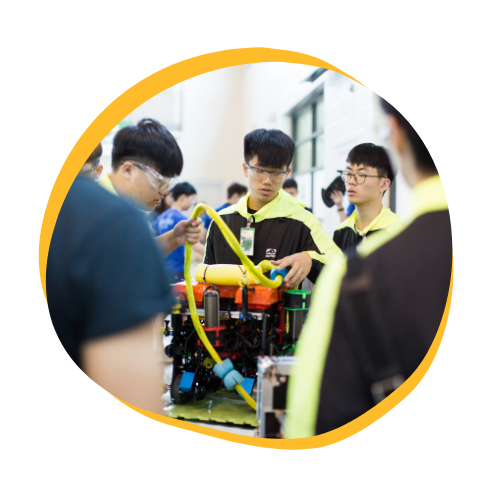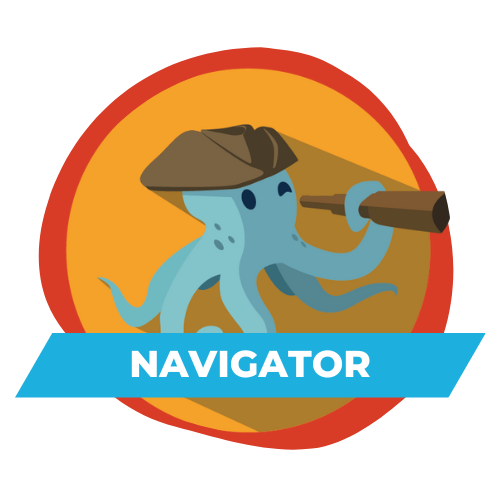

There's a class for everyone.
The competition is organized into five competition classes (levels) that range from beginner to advanced - SCOUT, NAVIGATOR, RANGER, PIONEER, and EXPLORER. This allows students to progress to the next level as they build upon their knowledge and skills, and allows us to scale the mission tasks and other (i.e., engineering and communication) components appropriately.
General Eligibility Rules
- Open to elementary school, middle school, high school (grades K-12), community and technical college, and four-year university students as well as home-schooled students of comparable grade levels. Students of comparable grade levels participating in afterschool programs or organizations such as the Boys & Girls Club or Boy/Girl Scouts are also welcome to compete.
- Graduate students are NOT eligible to compete as student team members, but are welcome to serve as team mentors or lead instructors. Graduate students are encouraged to contribute to the team via advice and technical assistance.
- Students can participate in the competition as a part of a school course, afterschool program, club, or community organization. However, regardless of how the team is formed, it must demonstrate that 1) the participating students fall within the eligible grade levels and 2) if minors, the students are working under the supervision of a responsible adult mentor.
- Teams can consist of students from different schools and/or grade levels.
- Teams must have at least three students with at least one faculty member or adult mentor involved in the process.
- The role of the faculty member or adult advisor must be limited to educational and inspirational support. Actual construction of the vehicle, particularly in the complex electrical and software areas, must be completed by the students. Students will be questioned extensively by the judges on their role in designing and building the ROV.
- Individuals from industry, businesses, research organizations, and/or government can act as mentors during the design and building process. The role of these individuals must be limited to technical guidance. Industry mentors should not participate in the actual construction of the vehicle.





